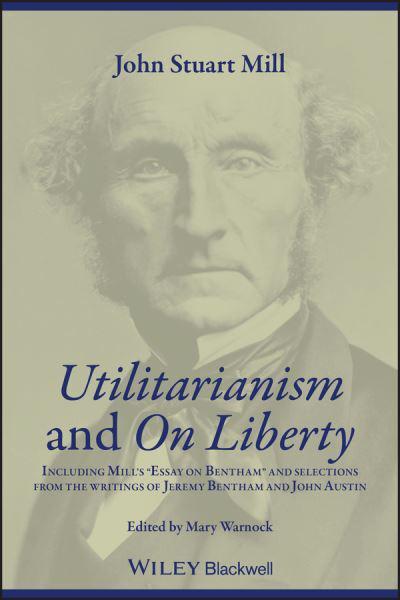
Mill's four essays, 'On Liberty', 'Utilitarianism', 'Considerations on Representative Government', and 'The Subjection of Women' examine the most central issues that face liberal democratic regimes - whether in the nineteenth century or the twenty-first. Though it has had its critics, On Liberty remains a key document and has a special resonance for world politics today.'it is only the cultivation of individuality which produces, or can produce, well developed human beings' But he emphasises the fundamental importance of individual liberty, so long as it does not harm others.

Nevertheless, he considers the 'tyranny of the majority', and he acknowledges that in certain societies rule by command may benefit the majority.

He discusses the necessary balances between authority and liberty the individual must have freedom, but within a utilitarian (greatest-happiness principle) compass. In On Liberty (published in 1859 and written with his wife, Harriet Taylor, who died a year earlier), Mill applied his already established views on utilitarianism to the society and the state. Mill expands on this view in five chapters and deals with difficulties and criticisms, including the balance of individual versus general happiness. In Utilitarianism (published in 1863, four years after On Liberty), Mill observes that 'the principle of utility' equates to the 'greatest-happiness principle' and that this should be the basis of an ethical life. A remarkable man - he learned Greek aged three and at eight had read Herodotus, Xenophon and Plato - he campaigned all his life for a just society. John Stuart Mill (1808-1873) was a torchbearer for liberal thought in the 19th century, including liberty of the individual and freedom of speech, and he championed women's suffrage in Parliament.


 0 kommentar(er)
0 kommentar(er)
